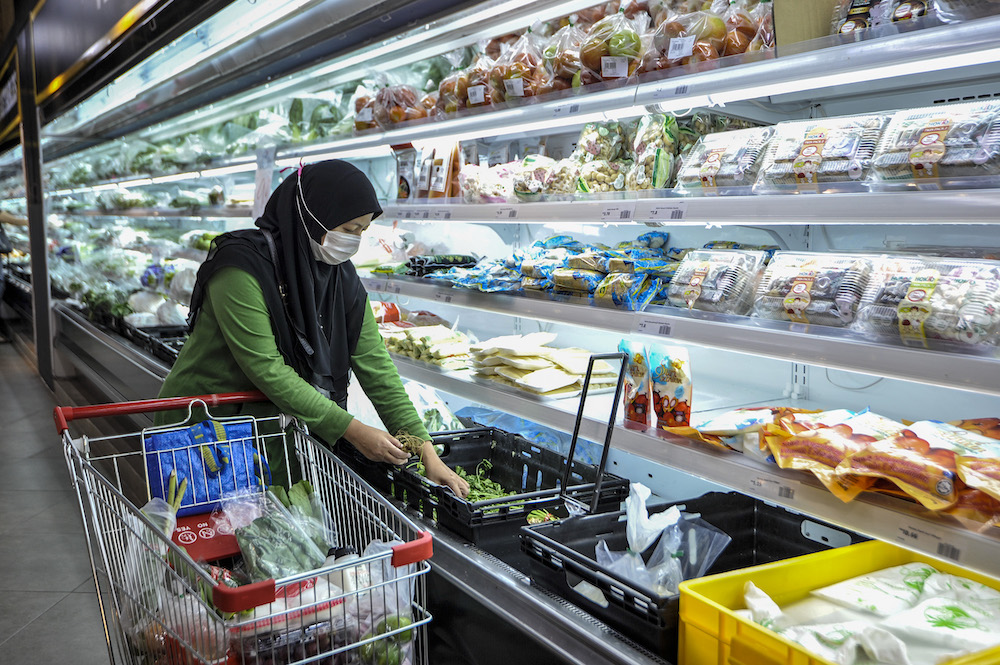PETALING JAYA, Feb 24 — 2022 marks the third year of Malaysians living with Covid-19.
While lockdowns are poised to become a thing of the past, at least for now, new variants like Omicron continue to test the resilience of the public when it comes to pandemic complacency.
As Malaysia prepares to fully reopen borders by the second quarter, leading scientists in the UK have warned that a future variant of Covid-19 could be more dangerous and might cause a higher death toll and serious illness than Omicron.
Are Malaysians still paranoid of being in crowded spaces? Are they self-imposing isolation since there won’t be any more movement control orders? What precautionary measures are many taking to prevent infection?
Malay Mail spoke to some Malaysians to find out more about how they are coping with Omicron and the measures taken to prevent infection.
‘Self-imposed isolation’
Mum of one, Anya*, 33, believes in self-imposed lockdowns whenever she and her daughter were casual contacts, which doesn’t require quarantining.

She also avoids crowded spaces and refrains from meeting with too many groups of people.
“I got vaccinated, boosted, self-isolate as a measure, shower with hot water more often and rather eat freshly cooked hot meals to help reduce whatever bacteria possible,” she said.
“I’m not paranoid about touching things but I get paranoid about people who don’t wear their masks properly (noses uncovered) or have their kids wear masks.”
‘Wipe down groceries, restructured savings’
Although Alexandra Ng*, 37 who works in human resources is less paranoid compared to when Covid-19 first struck, she still only goes out for groceries, hospital visits and the occasional coffee run with friends who are leaving the country.
Some personal measures Ng is taking include wearing KN95 and KN94 masks only, sanitising every surface she comes into contact with, wiping down grocery items and working from home whenever possible.
“I sanitise seats, supermarket trolleys and the car steering wheel, handbrakes and window buttons.
“And also sanitise lift buttons and credit card machines if payWave isn’t available,” she said.
Although her elderly parents have been boosted, she is concerned as Omicron spreads faster with less contact time.
Having to care for parents with no health insurance also adds another layer of worry for Ng.
“I restructured my savings and emergency funds to cater for the possibility of seeking Covid-19 treatment in a private hospital if government hospitals are full,” she said.
‘Shower once I’m home’
Agile strategy and operations head Adrian Chow, 31, feels Malaysians must embrace their new reality and live with the virus as another lockdown will destroy the economy.
He believes more sectors should open up without putting too much strain on the healthcare system but said people should continue practising basic precautionary measures when out in public.
“I always take a shower once I am home and make sure the clothes go straight into the washing machine.
“When I am out of my home, I always carry a pocket-size hand sanitiser and keep my mask on at all times in public,” he said, adding that he treats his face mask as a piece of fashion accessory.
‘Regular self-testing a must’
Human resources professional Dolly Loong, 35, said rising cases across the country brought on by the new Omicron variant while the economy is slowly opening up is cause for concern as she lives with parents who fall into the higher risk group.

“I am afraid of affecting them, so I minimise going out to crowded places or attend big gatherings,” she said, adding that adhering to the SOPs is crucial to curb the spread of Covid-19.
“Performing regular self-testing is a must.”
‘Worried when someone coughs’
Digital professional Joel Lim, 31, has learned to live with the virus, taking comfort in the fact that most Malaysians he has come across follow the SOPs.
Having started a Team A and Team B rotational working arrangement last month, Lim isn’t paranoid but “is still very cautious and worried whenever I hear someone coughing around me.”
To prevent contracting Omicron, Lim changes his mask frequently and self-tests once a week to protect those around him.
‘Clearer SOPs for Omicron’
Zack Lee*, 33, who works in a start-up said he is optimistic about the vaccination rate but thinks the opening of borders can be risky with Omicron.
Asked if he was paranoid about going out, Lee said, “I can’t say I am paranoid but I’m confused about the Omicron wave’s SOP for close contact, so I’m currently avoiding crowded and smaller spaces where possible.”
Like many Malaysians, Lee also self-tests prior to social gatherings for extra precaution.
*Respondents who used a pseudonym for anonymity.






















